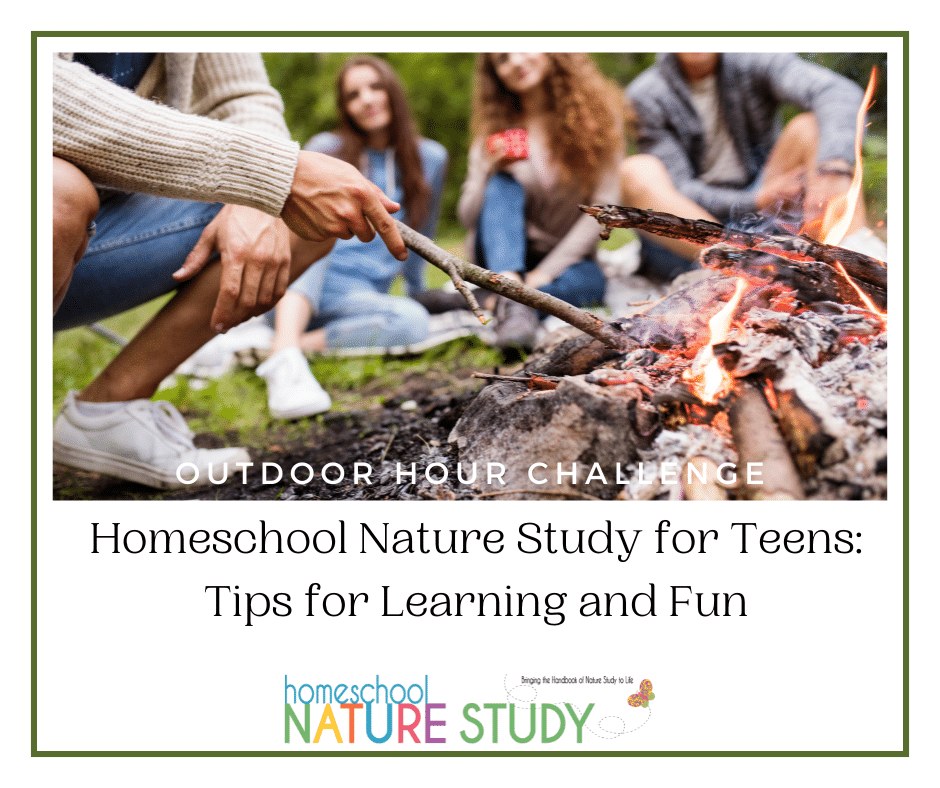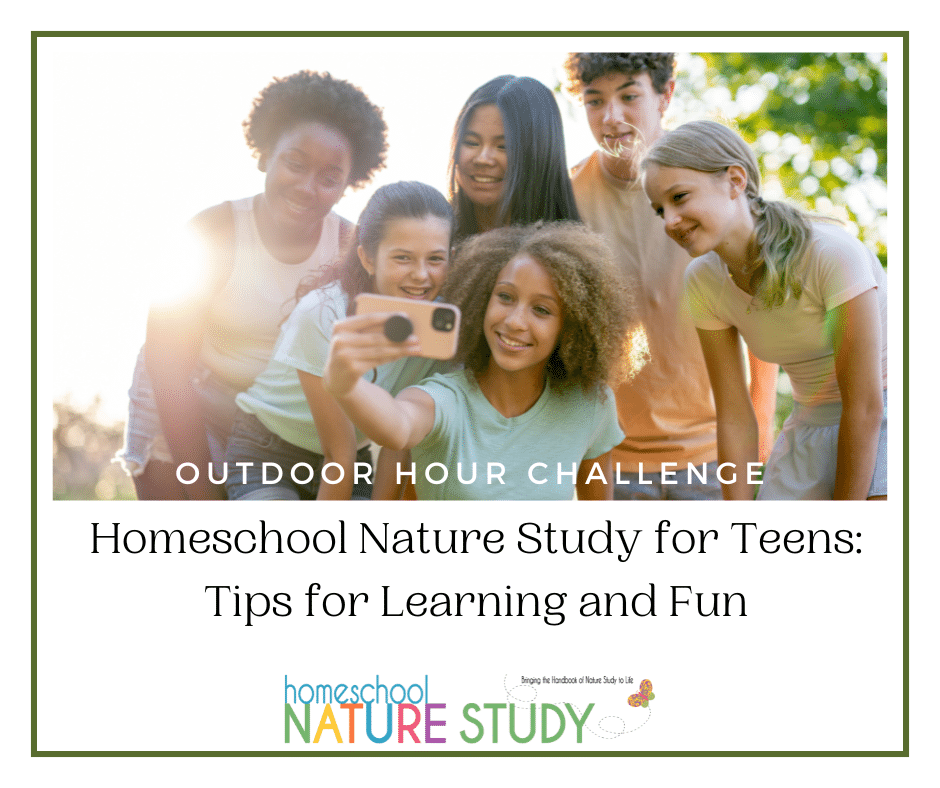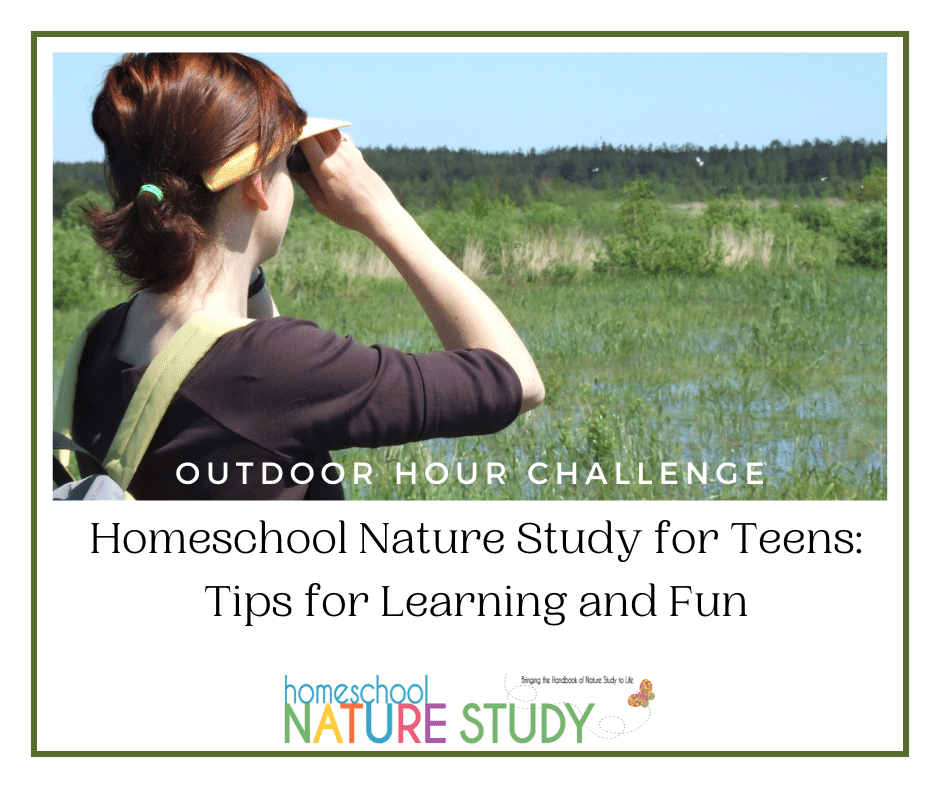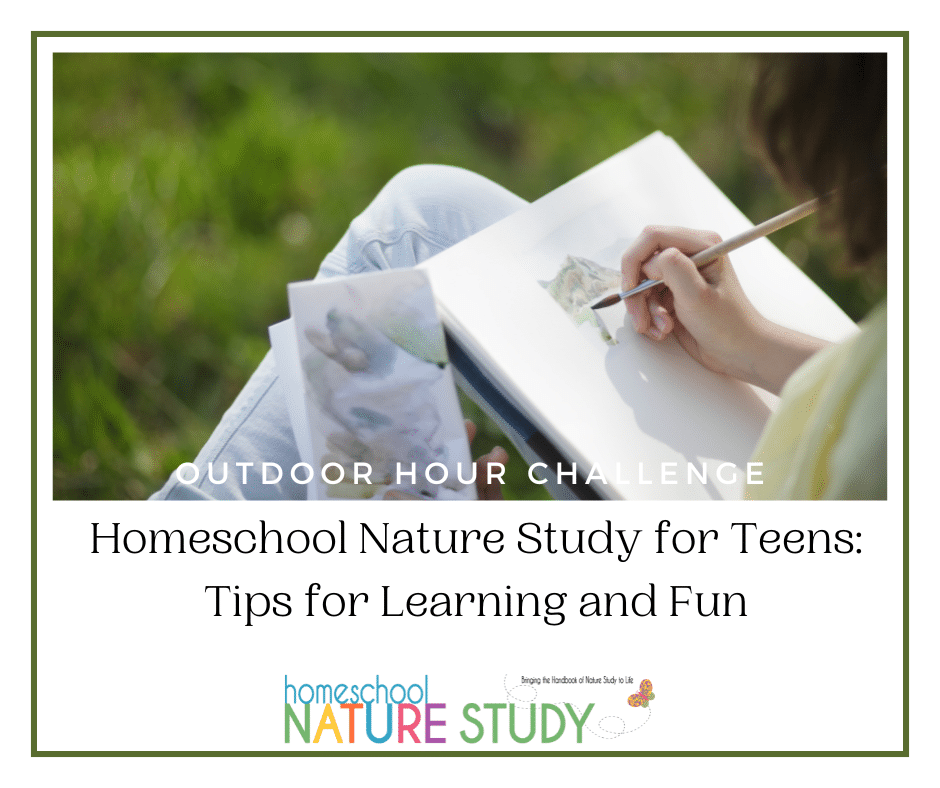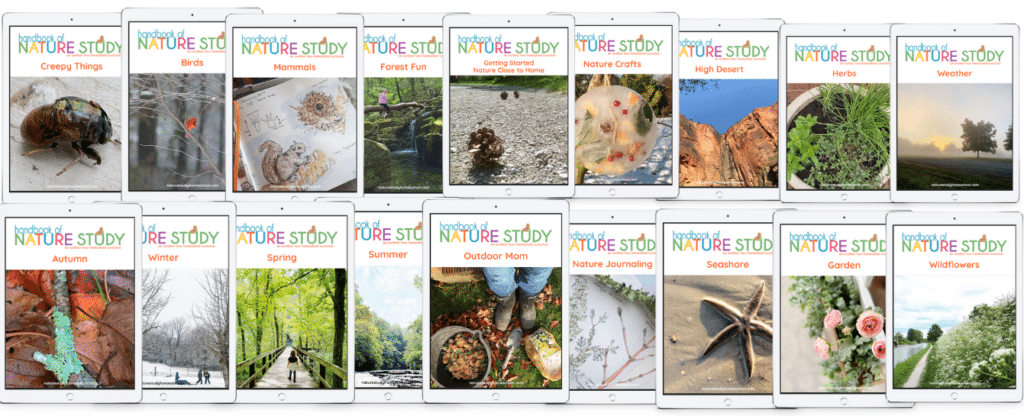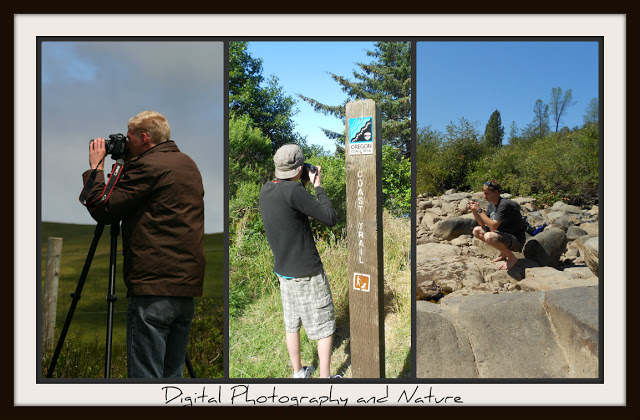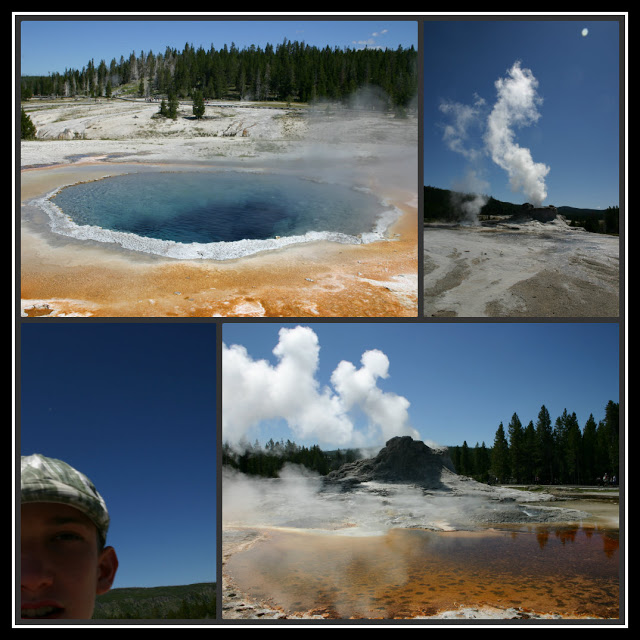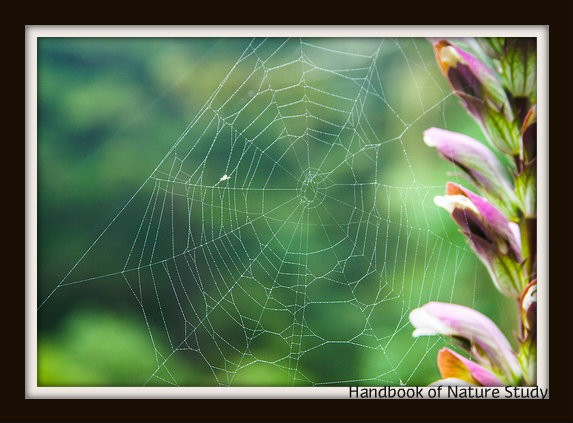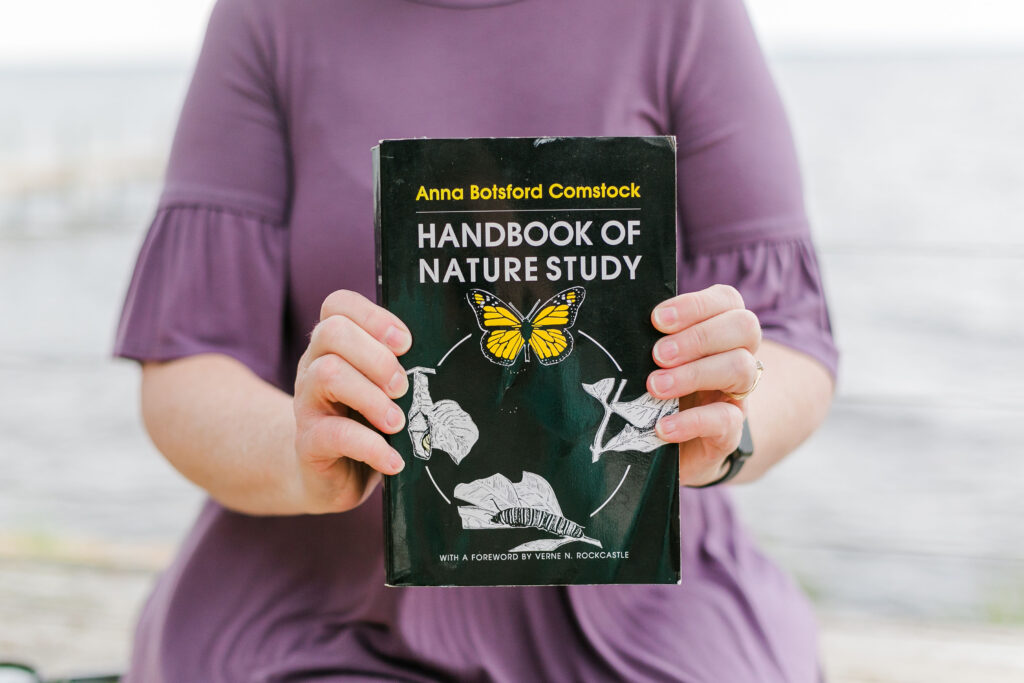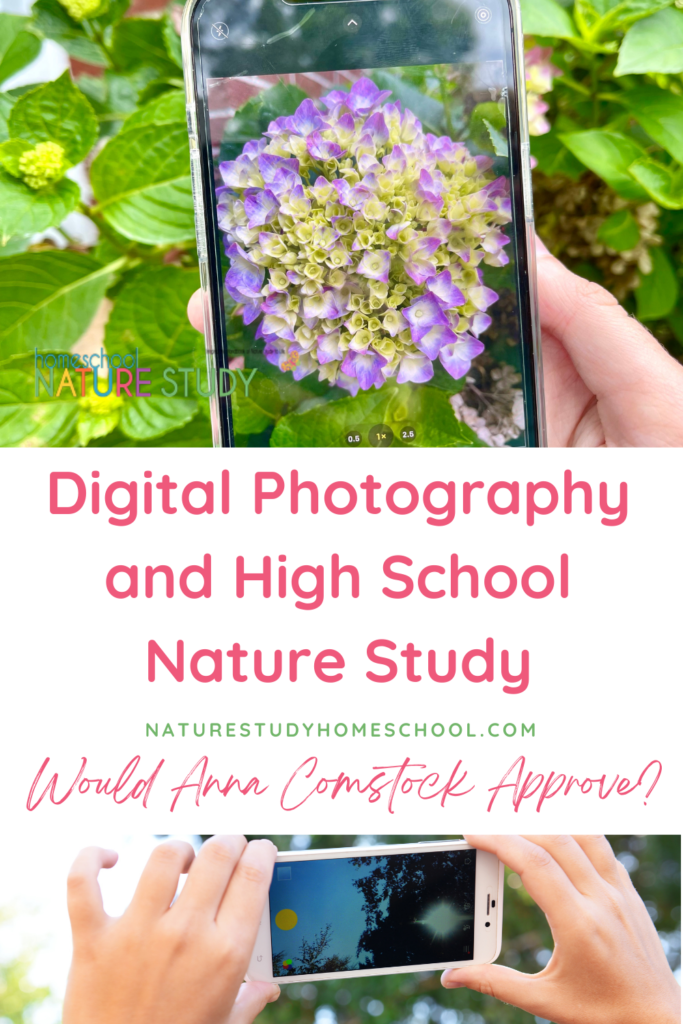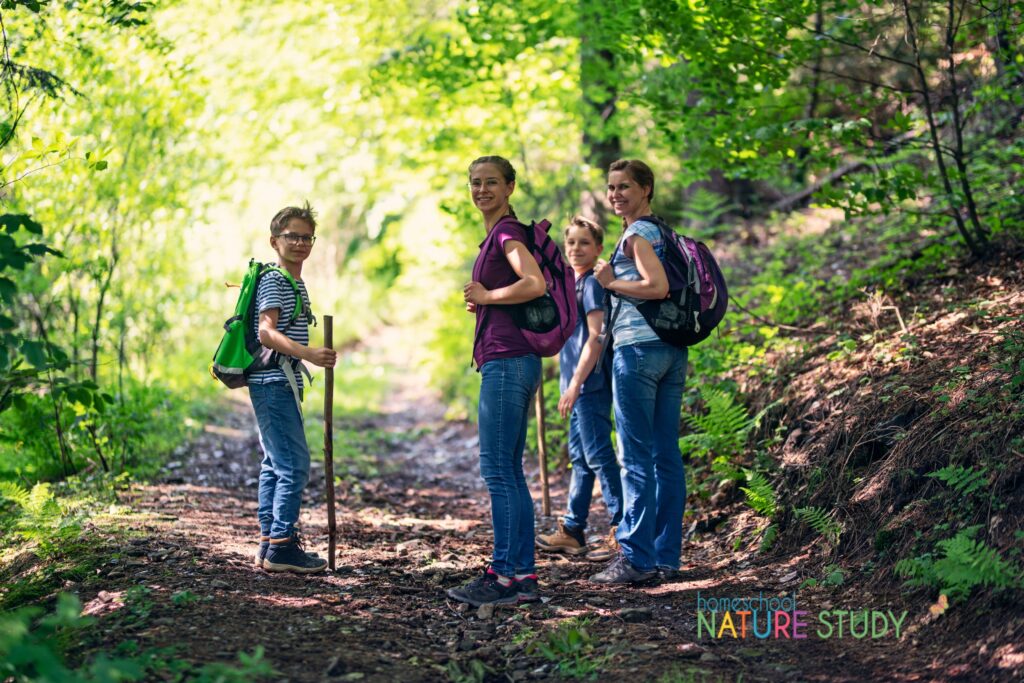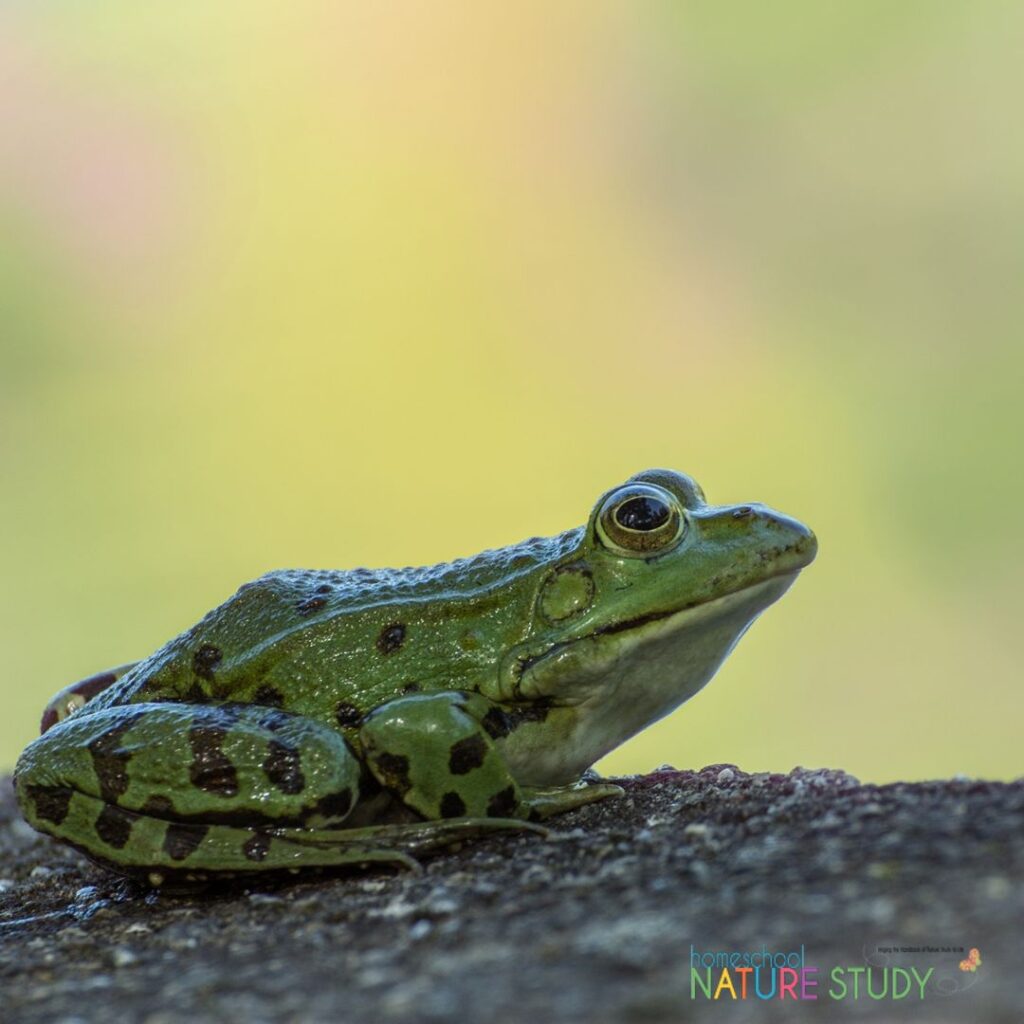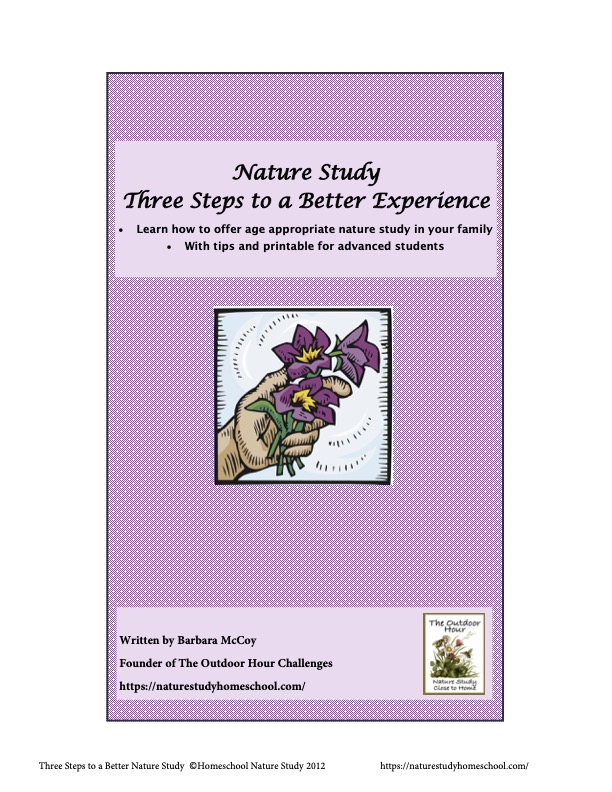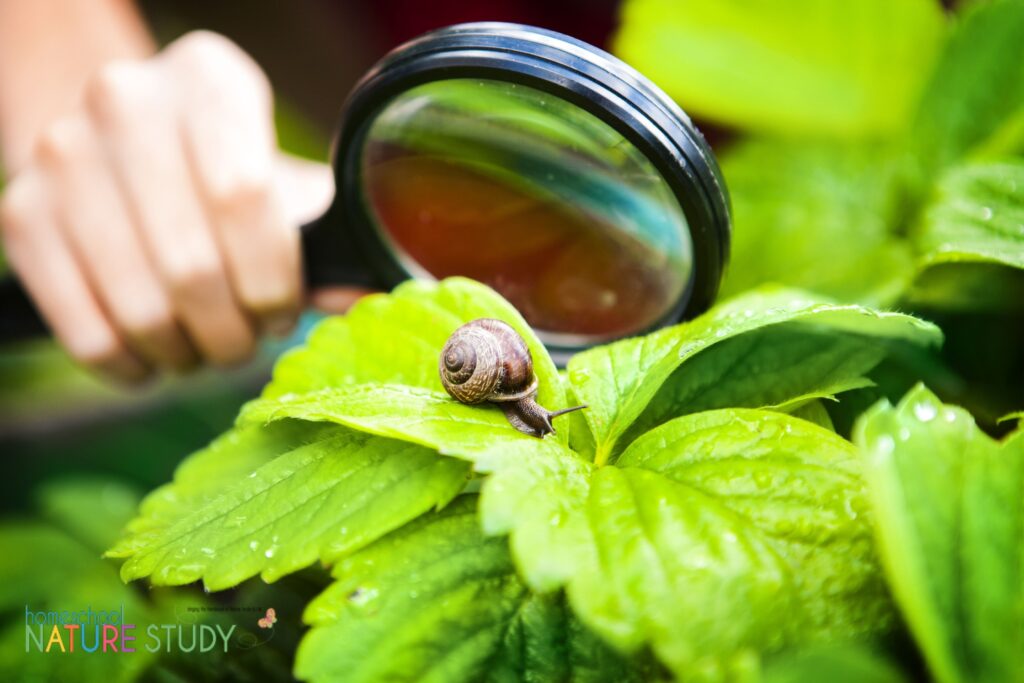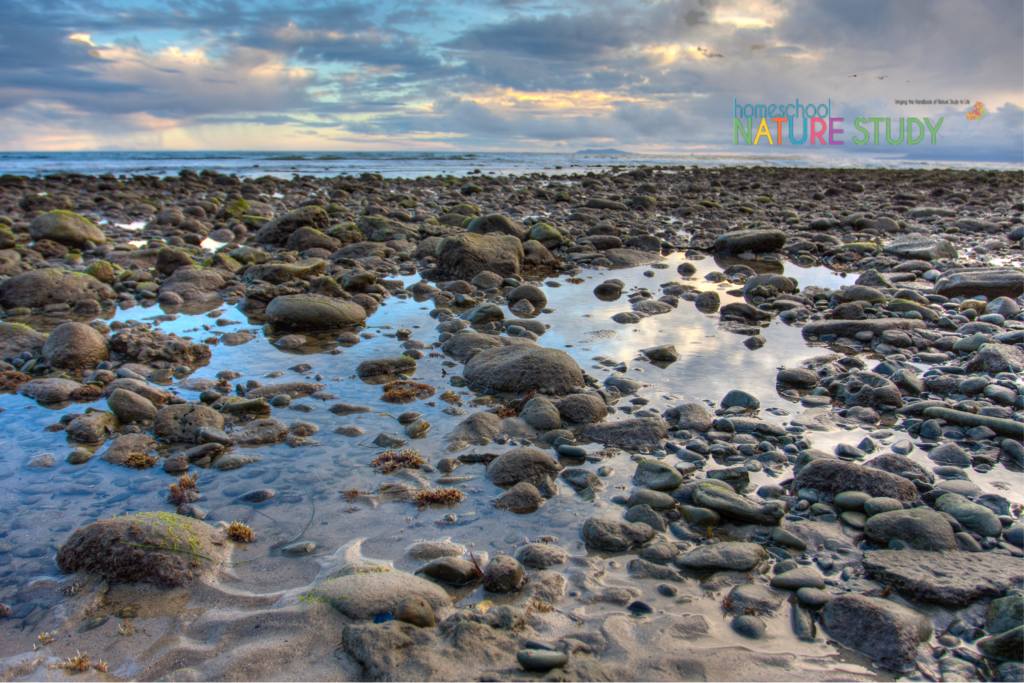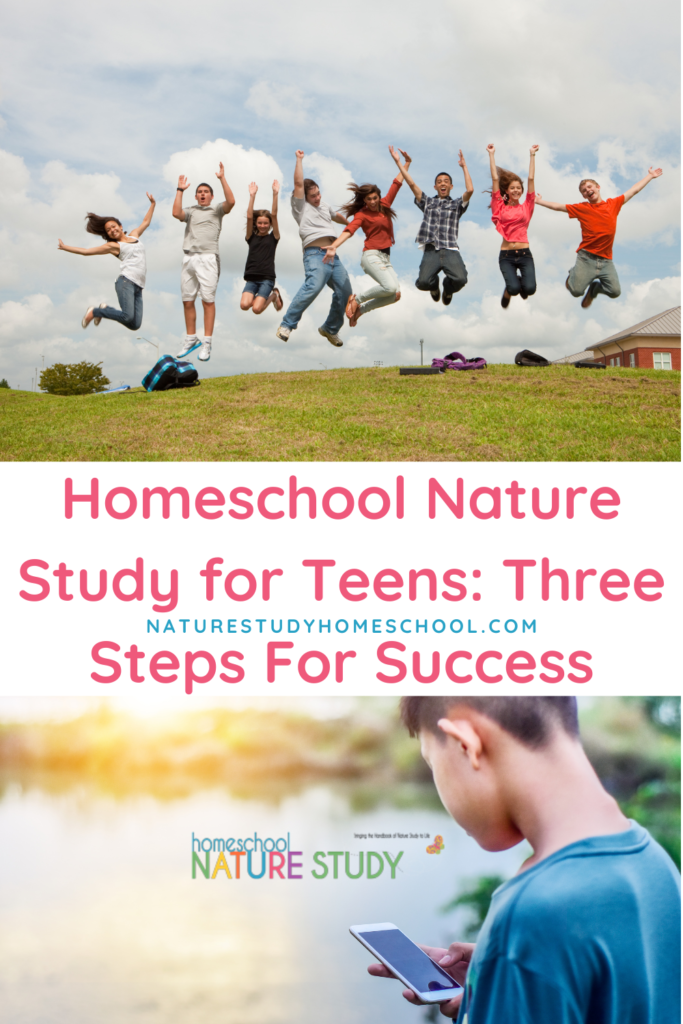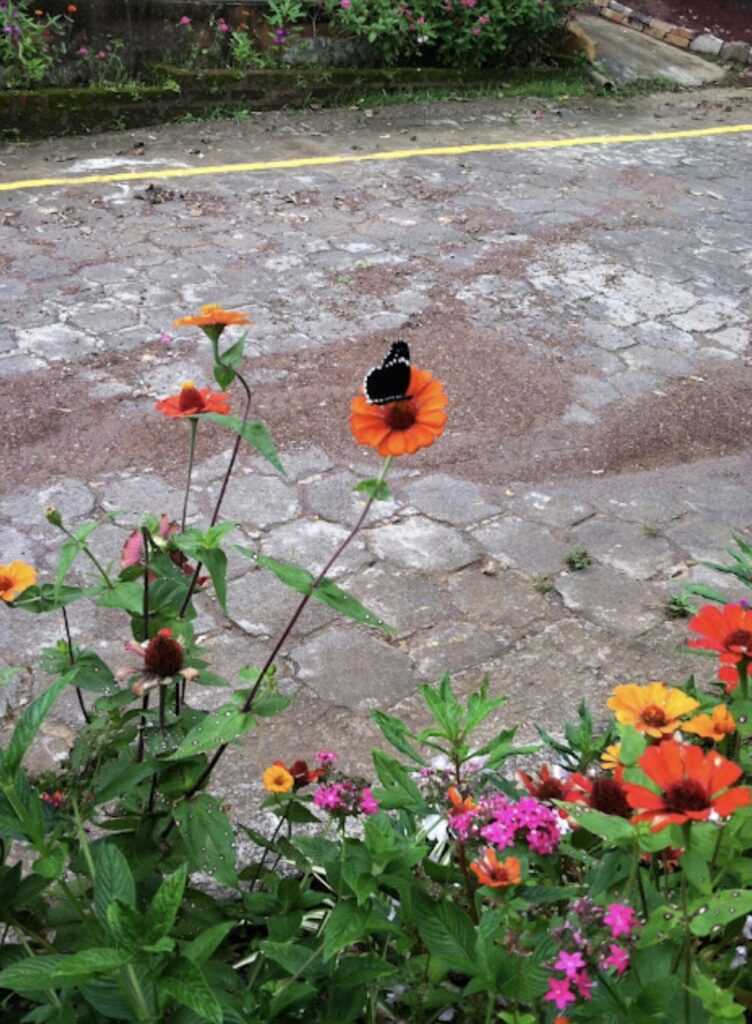Let’s talk about nature study and your homeschool high school transcript.
As your homeschooled teen moves into the high school years, you may be wondering how to document your nature studies. If so, then you may want to bookmark this post!
Having homeschooled my daughters using the Charlotte Mason method of learning and maintaining that way of learning throughout their entire schooling career. You may be wondering how you can continue to include subjects such as nature study and what it may look like on your high school transcript.

I will say at the outset that the key to compiling a comprehensive transcript is by deploying meticulous record keeping skills. I would advise getting your teen into the habit of recording the time spent on nature study (or any practical application activity) and what it was that they covered. This encourages your student to start taking an active role in his/her education. In this post, I share the approach we took in our own homeschool in documenting nature study in our high school transcript.
Your Homeschool High School Transcript: The Basics
Creating a high school transcript for your homeschooled teen involves recording and presenting their academic achievements in a clear, organized manner. Since homeschooling allows for greater flexibility than traditional schooling, you have the opportunity to customize the transcript to reflect your teen’s unique learning experiences and achievements. Here’s how to go about it:
1. Basic Structure of the Transcript
- Student Information: Include the student’s full name, date of birth, and contact information. You might also include a student ID number if applicable.
- School Information: List your homeschool’s name (you can create one if you don’t already have a name), address, and contact information.
- Transcript Title: Clearly state “High School Transcript” at the top of the document.
- Dates of Attendance: Specify the years your teen attended high school (e.g., 2020-2024).
2. Course Listings and Credits
- Course Names: List each course your teen completed. You can be more descriptive than traditional schools, reflecting the specific focus or approach of the course (e.g., instead of just “Biology,” you could write “Advanced Biology with Lab Focus on Genetics”).
- Credits Earned: Assign credits to each course, typically based on the amount of time spent. In the U.S., one credit usually represents one year of study in a subject. You can adjust this if your homeschool follows a different system.
- Grades: Record the grades earned for each course. You have the flexibility to use letter grades, percentages, or even descriptive assessments (though letter grades are most commonly recognized).
3. Customizing with Flexibility
- Course Descriptions: Unlike traditional transcripts, you can include brief descriptions of each course to provide context. For example, “World History: A study of global events from the Renaissance to the present, with a focus on cultural interactions and primary source analysis.”
- Unconventional Learning: If your teen engaged in non-traditional learning experiences (e.g., internships, travel-based learning, independent projects), these can be listed as courses or electives. For instance, “Photography: A self-directed study culminating in a portfolio and a community exhibition.”
- Specialized Subjects: If your teen pursued specialized or niche subjects, include them. For example, “Environmental Science: An in-depth exploration of local ecosystems, including hands-on fieldwork and a final research paper.”
4. GPA Calculation
- Grading Scale: Clearly outline the grading scale you used (e.g., A = 90-100, B = 80-89, etc.).
- Weighted vs. Unweighted GPA: Decide whether to use a weighted GPA (which gives extra points for advanced courses) or an unweighted GPA. Calculate the GPA based on the grades and credits earned.
5. Additional Sections
- Extracurricular Activities: Include a section for extracurricular activities, highlighting your teen’s involvement in clubs, sports, volunteer work, or hobbies.
- Standardized Test Scores: If applicable, list standardized test scores (e.g. SAT).
- Awards and Honors: Mention any awards, recognitions, or scholarships your teen has received.
6. Finalizing the Transcript
- Signature and Date: At the bottom of the transcript, include a line for your signature and the date. This signifies that you verify the accuracy of the transcript.
- Seal or Logo: If you want to make the transcript look more official, consider creating a simple seal or logo for your homeschool.
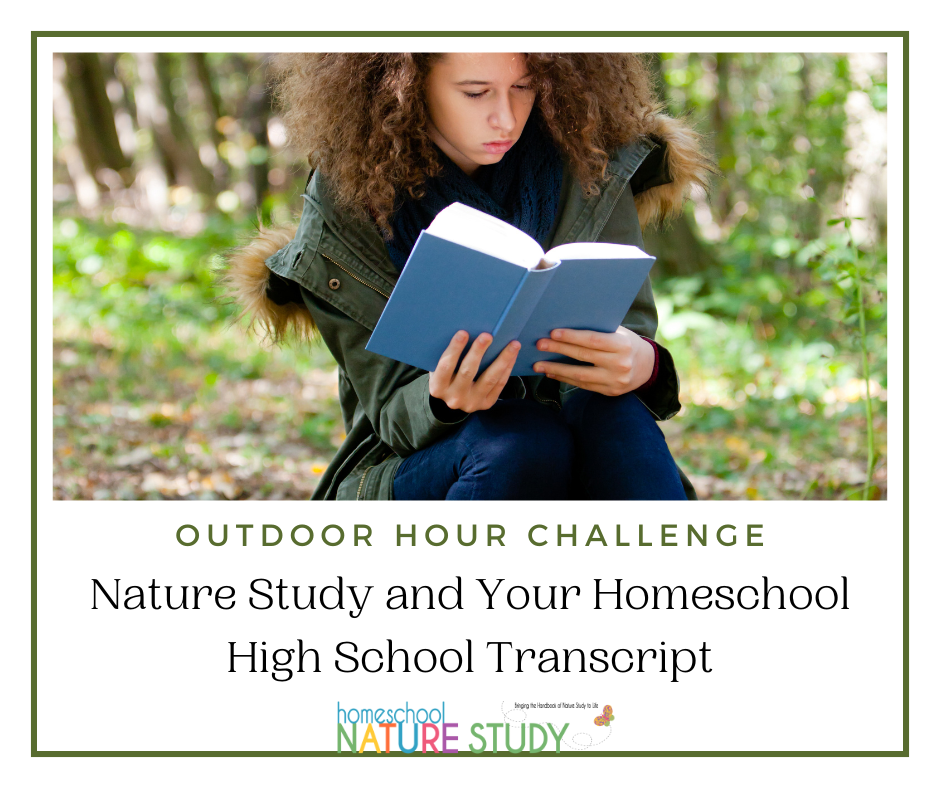
Tips for Flexibility and Descriptiveness
- Tailored Learning: Emphasize how the curriculum was tailored to your teen’s interests and strengths.
- Interdisciplinary Courses: If your teen’s studies crossed traditional subject boundaries, create interdisciplinary course titles that reflect this.
- Narrative Evaluations: Consider adding brief narrative evaluations or comments for each course or a summary at the end of the transcript to provide more insight into your teen’s performance and growth.
Creating a homeschool transcript allows you to showcase your teen’s education in a way that is personalized, thorough, and reflective of their unique educational journey. By being flexible and descriptive, you can ensure that the transcript effectively communicates your teen’s academic achievements and readiness for their next steps, whether that be college, vocational training, or entering the workforce.
Can you add nature study to your homeschool high school transcript? The answer is a resounding yes!
How to Account for Nature Study In Your High School Transcript With Examples!
Accounting for nature study in a high school transcript is a great way to highlight the hands-on, experiential learning that often occurs in a homeschool setting. Nature study can be integrated into various subjects or listed as a standalone course, depending on how it’s approached in your homeschool curriculum. Here are some ways to incorporate nature study into a high school transcript, along with examples of how to describe the learning:
1. Biology Credit
- Course Title: “Biology with Emphasis on Ecology and Field Studies”
- Description: “A comprehensive biology course with a focus on ecological systems, species identification, and the study of local flora and fauna through regular fieldwork. Students conducted independent research projects on ecosystem dynamics and prepared detailed field journals.”
- Credit: 1 Credit (Lab Science)
2. Integrated Science Credit
- Course Title: “Integrated Environmental Science”
- Description: “An interdisciplinary study combining biology, chemistry, and earth science with a focus on environmental systems. Students explored topics such as soil composition, water quality, and plant biology, supported by regular nature hikes and lab work involving data collection and analysis.”
- Credit: 1 Credit (Science)
3. Elective Credit
- Course Title: “Nature Study and Outdoor Education”
- Description: “A hands-on elective focusing on the observation and study of natural environments. Students engaged in activities such as bird watching, plant identification, and wildlife tracking, with an emphasis on developing skills in journaling, sketching, and outdoor survival techniques.”
- Credit: 0.5 to 1 Credit (Elective)
4. Environmental Science Credit
- Course Title: “Environmental Science: Field Ecology”
- Description: “An in-depth exploration of ecosystems, conservation, and environmental stewardship. Coursework included field trips to various ecosystems, such as wetlands and forests, where students conducted species inventories and assessed the impact of human activity on natural habitats.”
- Credit: 1 Credit (Lab Science)
5. Physical Education Credit
- Course Title: “Outdoor Adventure and Fitness”
- Description: “A physical education course that combined fitness with outdoor skills, including hiking, orienteering, and survival skills. Students also participated in activities like rock climbing and canoeing, while learning about the physical and mental health benefits of regular interaction with nature.”
- Credit: 0.5 to 1 Credit (Physical Education)
6. Art Credit (Interdisciplinary Approach)
- Course Title: “Nature and Art: A Creative Study”
- Description: “An art course focused on nature as a source of inspiration. Students created detailed botanical illustrations, landscape paintings, and nature-inspired sculptures. The course also included lessons on the history of nature in art, with visits to local parks and gardens for on-site sketching.”
- Credit: 0.5 to 1 Credit (Art)
7. Independent Study or Capstone Project
- Course Title: “Independent Study: Ecology and Conservation”
- Description: “A student-led research project focused on local conservation efforts, including habitat restoration and species preservation. The study involved regular fieldwork, collaboration with local environmental organizations, and the creation of a final report and presentation on findings.”
- Credit: 0.5 to 1 Credit (Elective/Science)
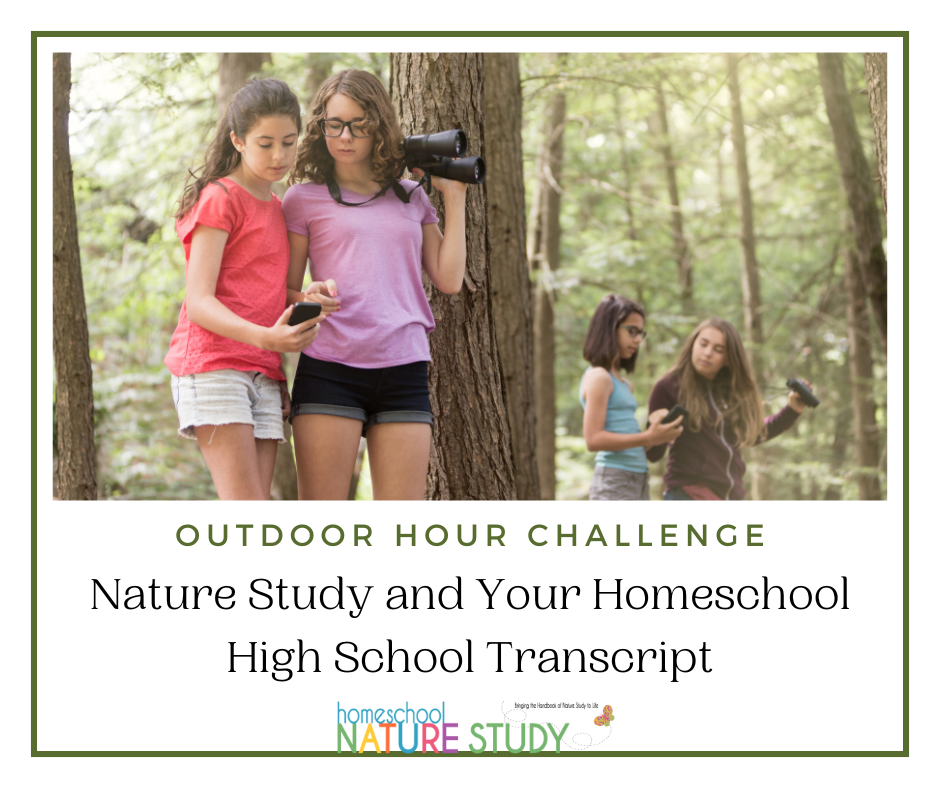
Tips for Describing Nature Study on a High School Transcript
- Be Specific: When describing the course, focus on the specific skills and knowledge your teen gained. For example, rather than just “plant identification,” you might say “identification of over 50 native plant species and their ecological roles.”
- Highlight Hands-On Experience: Nature study often involves practical, hands-on learning. Mention field trips, outdoor labs, or independent research projects.
- Interdisciplinary Learning: If nature study crossed over into multiple subjects, make that clear in the course title and description. This can show the depth and breadth of the learning experience.
- Use Professional Terminology: Incorporate relevant scientific terms where appropriate to give the course a more academic tone.
By thoughtfully integrating nature study into your teen’s transcript, you can provide a clear and compelling account of their engagement with the natural world, highlighting both their academic and personal growth.
More Resources for High School Nature Study In Your Homeschool
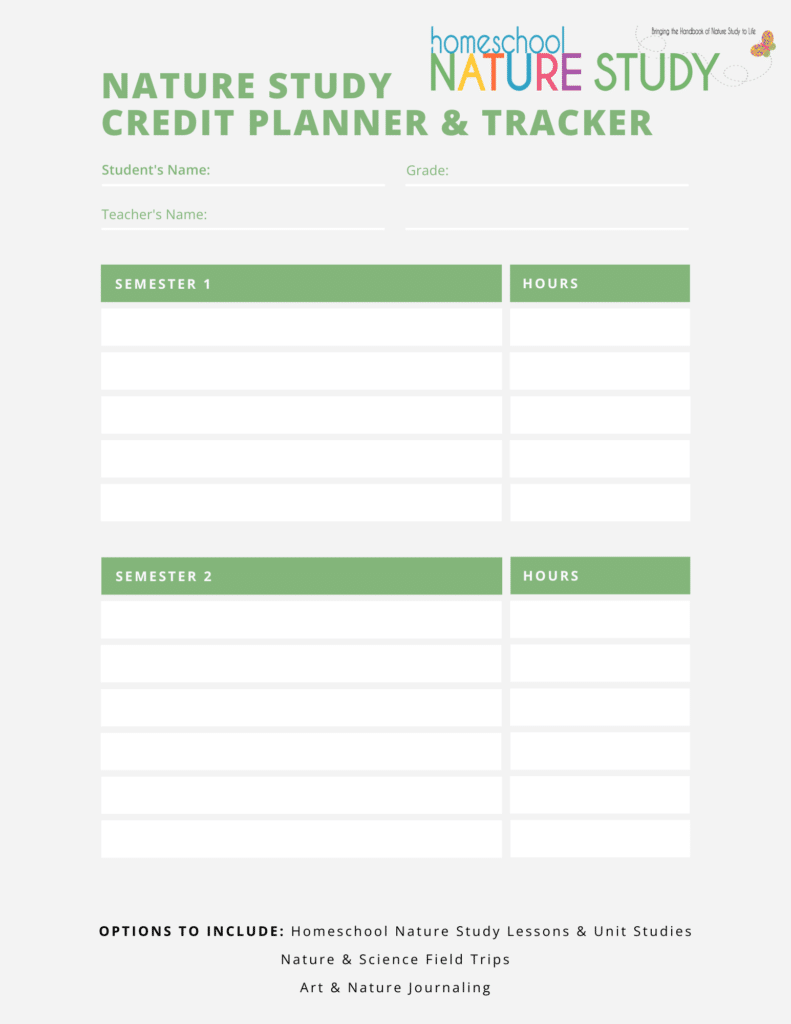
For more support you may be interested in our Nature Study Credit Planner and Tracker above. Simply sign up below to get your free record keeping sheet.
- Homeschool Nature Study for Teens: Tips for Learning and Fun
- Nature Study and High School Science: A Complete Guide
- Read our sister site’s Fine Art Credit for your Highschool Transcript Guide
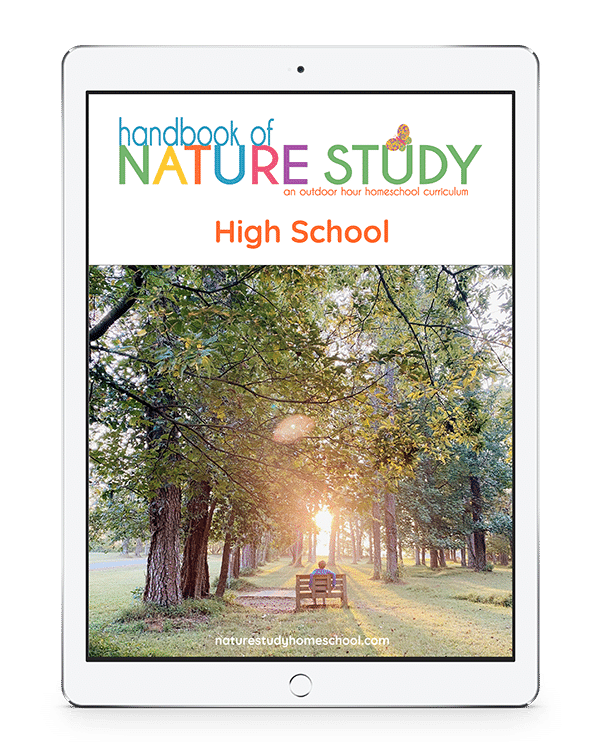
Options for high school and advanced learners included in Homeschool Nature Study membership!
We hope that this post has been useful to our homeschooling high school families. Please do let us know in the comments if you would like us to cover any other homeschool high school nature study topics or let us know if you have any questions.



